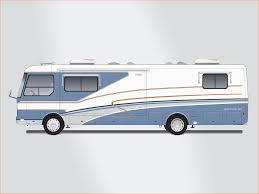|
When it comes to RV/motor Home Insurance, there are different ways to set up a policy. Some people simply attach it to their auto insurance policy, if their company allows it. Others buy exclusive stand-alone insurance for their RV or motor home. But not all companies are the same as far as insurance coverage that they offer for RV’s. Many of you are either getting cheated out of coverage and/or are probably paying too much for the coverage you are getting. This is especially true for RV's written on an auto insurance policy. This article will help you understand what you need to know about having good coverage on your RV or motor home. I’ve come up with a checklist for you to see exactly what should be on a good a RV or motor home insurance policy. My advice would be to pull out your current policy and look at exactly what is covered and what isn’t. Make sure all the major coverages are there and that levels of coverage are adequate. Chances are that your RV policy doesn’t offer the great coverage like you thought it did. If your policy doesn’t stack up to the coverage offered on better RV insurance policies, it may be time to shop around for some better coverage. And if you haven’t shopped around with multiple companies before, you might be very surprised that upgrading coverage may cost about the same, if not less than what you were paying before. A good RV insurance policy should include all of the following: 1. Newer vehicles: Total Loss coverage and Replacement cost coverage are a must! – If you just bought a brand new RV, or bought a brand new RV recently (within one model year of the present), your vehicle qualifies for total loss replacement coverage. If your RV is less than two years old you also qualify for replacement cost coverage. Both of these pay well over and above how RVS are normally valued on an insurance policy, which is actual cash value basis. There is a huge difference between these ways of valuing your RV/ motor home. This is very important! If you own a new RV (or almost new), this is very well worth looking into. This is especially true if you financed your RV, as this helps prevent RV’s from becoming upside down on the loan due to depreciation. 2. Higher limits of coverage offered on your RV your motor home – Some of these toys get to be very expensive. A good policy will offer up to $500,000 coverage for motor homes and up to $300,000 for travel trailers. 3. Higher levels of liability coverage offered – This is where RV owners can get into trouble! This is especially true if you attached your RV to your auto insurance policy. Your RV is obviously much larger than your regular auto vehicles, and thus can cause much more damage. Make sure that you have adequate coverage on your RV to cover you in case you’re at fault for an accident. 4. Emergency vacation expense coverage – This coverage is very helpful if you were to get into an accident while on vacation. These expenses will help you cover costs for lodging, transportation, etc. when your RV becomes in-operable from damage. A good policy will offer this coverage, but many companies don’t. 5. Full Timer’s Campsite package – This coverage is very important to have if you use your motor home as your residence. This gives you additional coverage similar to what you would see on a homeowners insurance policy. The most important part of this package is additional liability coverage. Almost any motor home insurance policy offers liability coverage, but it only applies when you’re driving the RV. But if you’re using your RV as a residence, what happens if someone gets injured while visiting? There is no liability coverage for this type of claim unless you have this full timer’s campsite package.
6. Accessory coverage – I don’t know anyone who owns a motor home that hasn’t added the least some accessories to it. A good motor home policy offers free coverage for accessories up to a limit, and also offers higher limits if you need at a very affordable price. 7. Personal property coverage – a good RV Insurance policy will also offer coverage for your personal property. The amount of coverage offered will vary from one company to the next. But a lousy RV policy will offer personal property coverage at all. 8. Roadside assistance coverage – Have you ever had to pay a tow bill on an RV? The policy terms and coverage varies greatly from one company to the next with roadside assistance coverage. This is even true with some of the better RV Insurance companies. My advice is to read through what is covered if you select roadside assistance, and then compare that to the price. You can decide for yourself whether or not it’s worth it. But more often than not, it’s usually a good idea to have it because the price is usually very low. I’m sure that of all the eight points mentioned above, not all of them apply to you. However, it will give you a very good idea of what to look for in an RV Insurance policy. Note: I’m sure that you have noticed that I have used the terms RV and motor home interchangeably. That’s because the companies I carry insure a broad range of different types of Motor Homes that can be insured. This includes:
However, there are some types of Motor Homes that I cannot insure. These include:
Summary: If you compare the above checklist to your current RV policy, you might be very surprised at what level your policy offers. If that’s the case, then it’s time for you to shop around! While it also may surprise you is that you can get a better policy was much better coverage for about the same amount premium if not less. This is especially true for those of you who have attached you’re a RV onto an auto insurance policy (because you’ve probably done very little shopping around by setting up that way, and shopping around is the T in finding the best rate). Get an RV/ Motor Home insurance quote with Lyles Insurance Call me for a Quote
0 Comments
Leave a Reply. |
Author
Dan Lyles is an Independent Insurance Agent serving Ohio, Indiana, Michigan, Pennsylvania, Virginia and West Virginia.. Archives
March 2021
Categories
All
|



 RSS Feed
RSS Feed